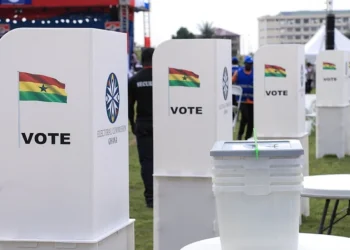Former Member of Parliament for Tamale Central, Inusah Fuseini, has revealed that Togbe Afede XIV is entitled to the ex-gratia payment made to him by government.
Mr Fuseini indicated that per the constitution of the country, he is eligible to enjoy such privileges having served on the Council of State, as such, his decision to reject the ex-gratia was equally his own choice. He explained that Togbe Afede XIV may have felt he should “not suffer the country with further depletion of resources [as a result of] returning it”.
“He is entitled to the payment by the constitution. Article 71 says that such persons appointed are entitled to some retiring benefits. If he decides he doesn’t want the payment and returns it, so be it… He is legally entitled to it but he thinks that he doesn’t want it, he thinks that he was engaged as a part-timer and was probably making more money for his full-time job than he is getting from part-time activities.”
Inusah Fuseini
Sharing his view on the ex-gratia, Mr Fuseini explained that the provision of Article 71 which finds expression in Article 58 of the 1979 constitution allows persons appointed into public office to exit with some retiring benefits. He highlighted that it is under such context that ex-gratia “has historical antecedents [and] some constitutional” foundation.
The former Tamale Central MP expressed that the third republic did not live its full term and as a result, members of parliament did not enjoy retiring benefits so described in the constitution. He emphasized that “retiring benefits are acts of payments for contracts and of contract employment”.
“In Ghana here, because of the way our constitution has been crafted, our retirement benefits always go high because somehow, we’ve tied Article 71 officeholders together with the provision in the constitution which says that the facility, salary [and] privileges available to the President shall not be diminished…”
Inusah Fuseini
Determination of ex-gratia
Mr Fuseini opined that the President is enjoined by the constitution to set up a committee to determine the salary of Article 71 officeholders. He revealed that due to the reading of the two provisions together, the salary of a President or Article 71 officeholder is always going to go high because it cannot be diminished to the disadvantage of the President.
“So, if this year the President receives X, next term he will receive X plus… The worse you can do is to maintain it and you can’t maintain it. The practice again, which has led us to not maintain it is that Presidents always set up the committee in their second term or at the end of their first term. So, they are paying salaries on account of what their predecessors were receiving until that committee makes a determination.”
Inusah Fuseini
According to Mr Fuseini, when a committee is set up by the President to make a determination on retiring benefits, the committee invariably considers other factors such as inflation, which he reckons influences what the committee determines.
“… The [salary] the committee determines is higher than what they will use to take on account. So, their ex-gratia will always go high.”
Inusah Fuseini
READ ALSO: Johnny Depp Might Waive Amber’s $8M Judgement- Attorneys



















